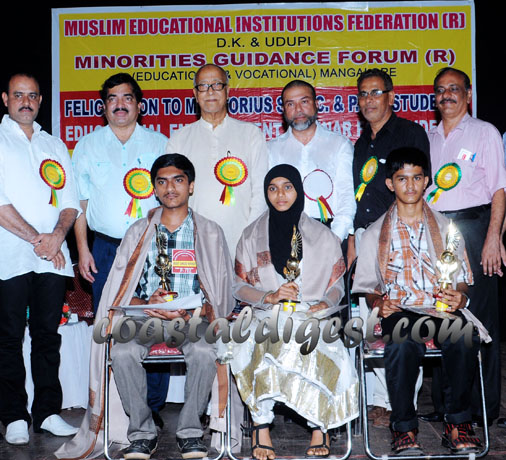
Mangalore, June 23: Dr. M. Mohan Alva, chairman, Alva's Education Foundation, Moodbidri, here on Saturday lashed out at tutorials and coaching centres for converting education into a business (dandhe) and undermining the hard work put in by educational institutions in producing meritocracy.
He was speaking at a function organised to felicitate meritorious SSLC and PUC students by Muslim Educational Institutions Federation, D.K. and Udupi and Minorities Guidance Forum, Mangalore, here at Town Hall.
Coming down heavily on tutorials and coaching centres who publish pictures of rank-holders in newspapers to promote their business, Mr. Alva attributed the present situation to the failure of educational institutions to prepare them for the competitive exams like CET, AIEE.
“Though Kanrataka implemented the revolutionary Common Entrance Test for engineering and medical courses as early as 1993, at least 50 to 60 per cent colleges do not have the capacity to prepare the students for the challenge. This has given an opportunity for private tutorials to intervene and convert education into business. They advertise the photographs of the students who score ranks to promote their brand undermining the efforts put in by the respective colleges in making these students triumph at the entrance examination,” he said.
He urged the teachers to work hard to meet the challenges of the changing world and equip themselves with necessary skills to impart education in the CBSC, which is implemented now everywhere. “This is high time that our teachers shed their lethargic attitude and update themselves with the latest happenings in the subjects they teach. Today students have to face the challenge at a national and international stage. Unfortunately, today students from Karnataka fare poorly in the national level examinations like AIEEE, AIPMT etc in comparison to students from neighbouring Tamilnadu and Andhra Pradesh. Among the 4.86 lakh candidates who wrote entrance examination for IIT, the number of candidates from Karnataka were only 2,699. Of the 13,196 candidates who have got the ranks only 235 are from Karnataka. Strictly speaking among them, only 134 are Kannadigas,” he said.
He said there is total lack of awareness about preparing students for entrance examination in Karnataka vis-à-vis regions like Mumbai and Delhi. “We start training after SSLC. But parents and teachers in Delhi and Mumbai start preparation from the first standard itself,” he said.
He urged the parents and students to think independently and avoid joining the bandwagon when it came to deciding the course and branch for future studies. “There is a wrong notion and illusion among both students and parents that joining science is the passport for success. There are 2,000 students in first year PUC in Alva's College, Moodbidri, who have chosen PCMB this year. Only 150 among them are interested in pursuing medicine after completing the PUC. The remaining 1,850 students have taken Biology as a subject, without applying any thought. Had they taken Stats or any other subject that would have been helpful for them while pursing an engineering course. But lack of knowledge and guidance makes students and students make wrong choices at such crucial stage,” he said.
Dr. Alva also urged students to decide their future move keeping their own interest, capacity and the financial position of the parents in mind. “Unfortunately the choice of course has also become a fashion. There is a group mentality that seems to be at work. A few years back there was a craze for BT and BCA courses. Today the number of students opting BCA at my college has come down to 50 from 200. There is a sudden demand for B.Com this year. But these trends are not guided by any solid logic. Even in engineering there is a spurt in demand for Mechanical Engineering,” he said.
Calling upon students to explore careers like CA and Company Secretary, which have a great demand. “Even Prime Minister Manmohan Singh has said that there country requires about 2 lakh Chartered Accountants. But unfortunately there is complete ignorance about how to pursue the course. Unlike in the past, it has become a lot more easier now to earn a CA degree. Those opting commerce at PUC should simultaneously enroll for CPT (Common Proficiency Test). This will help them prepare for CA even while studying B.Com. In just three and half years after graduation one can successfully complete CA,” he said.
Syed Mohammed Beary, Chairman of Bearys Group of Institutions, urged students to imbibe in their life values like perseverance and hard work. “There is no gain without pain. Only sacrifices make a man successful,” he said and added that students should develop the virtue of planning. “You should have both long-term as short-term plan,” he told the students.
Inaugurating the function Mangalore Mayor Gulzar Banu expressed happiness that Muslim girls were surging ahead in the field of education. “I got married at the age of 14. I got my first daughter married after SSLC. But the second daughter put her foot down and said I want to study. She was the topper at Govinda Dasa College. Today after completing MBA she is the manager at a bank,” Mrs Banu said.
Former Education Minister B.A. Moidin presided over the function. B.M. Mumthaz Ali, president, Al-Badriya Educational Institutions, Krishnapura also spoke. Y. Mohammed Beary, president MEIF, welcomed the gathering.
Prajwal Kumar, from Alva's Moodbidri, who scored 613 in SSLC to emerge topper for the State in Kannada medium, Misriya Suhana, from Nobel High School, who scored 615 in SSLC to emerge topper for the district among Muslims, Sahul Irshad, Vivekananda College, Puttur, who scored 566 to be the district topper for PUC were felicitated on the occasion.
Moosabba P. Beary, president MGF, B.A. Nazeer, General Secretary MEIF, Nisar F. Mohammed, general secretary MGF, Moidin Kunhi, chairman Al-Furqan, Moodbidri, among others, were present.
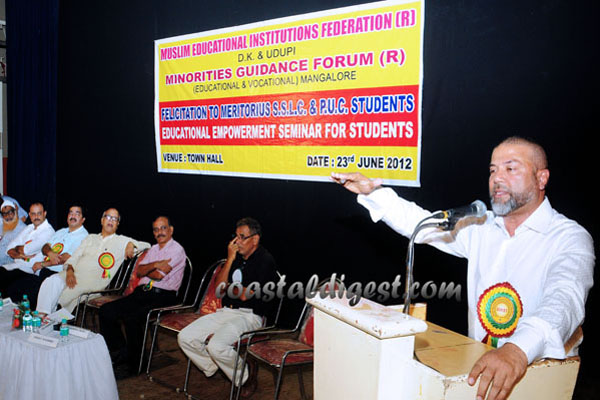
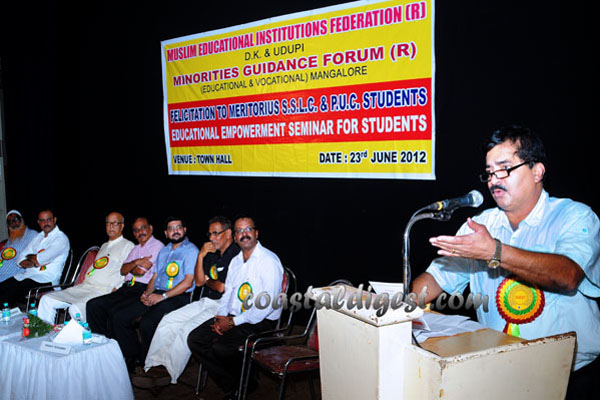
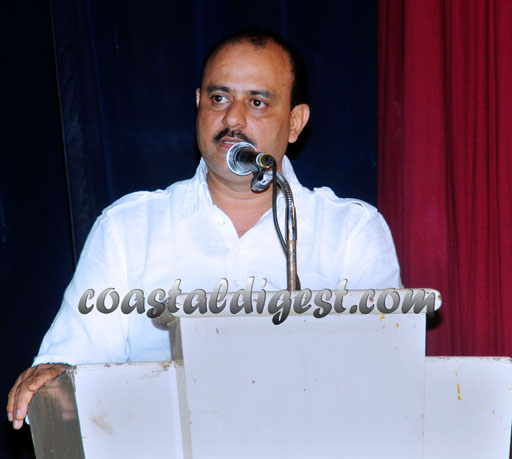
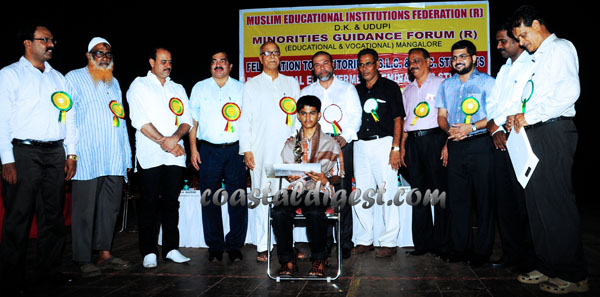
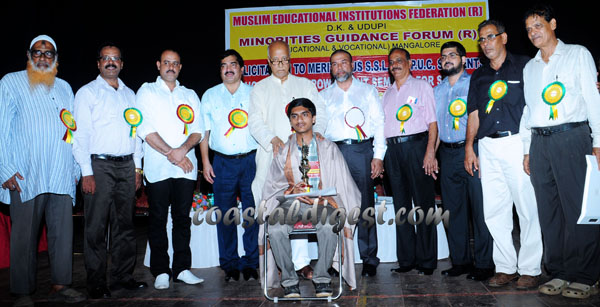
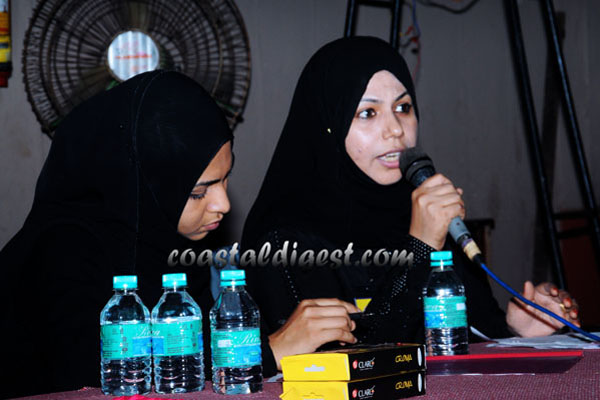
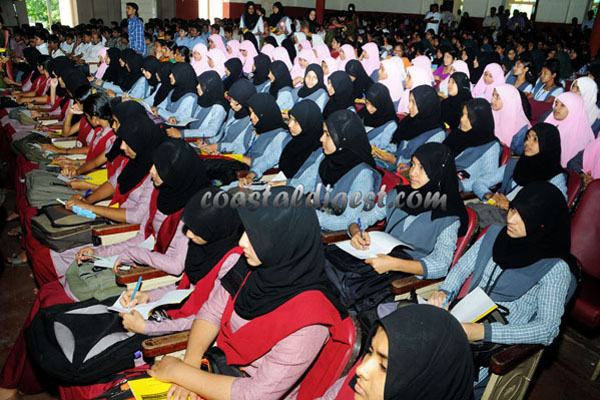
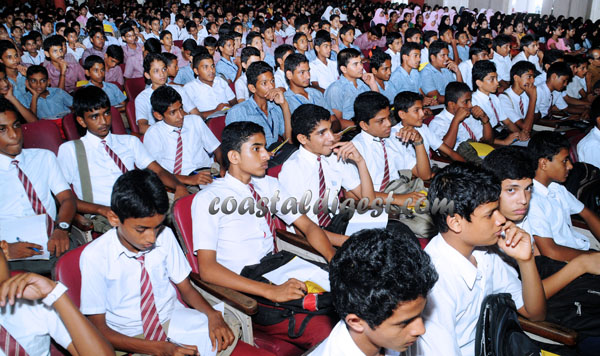
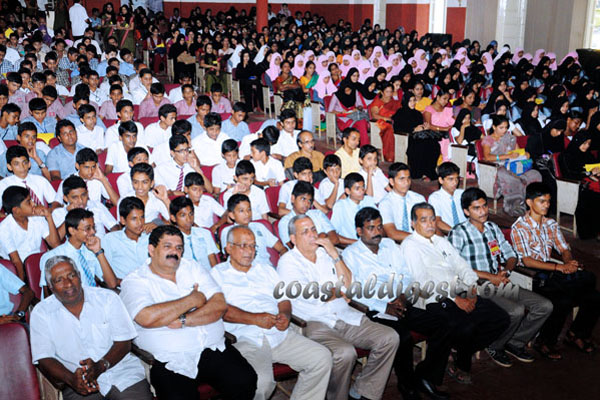





Comments
Add new comment